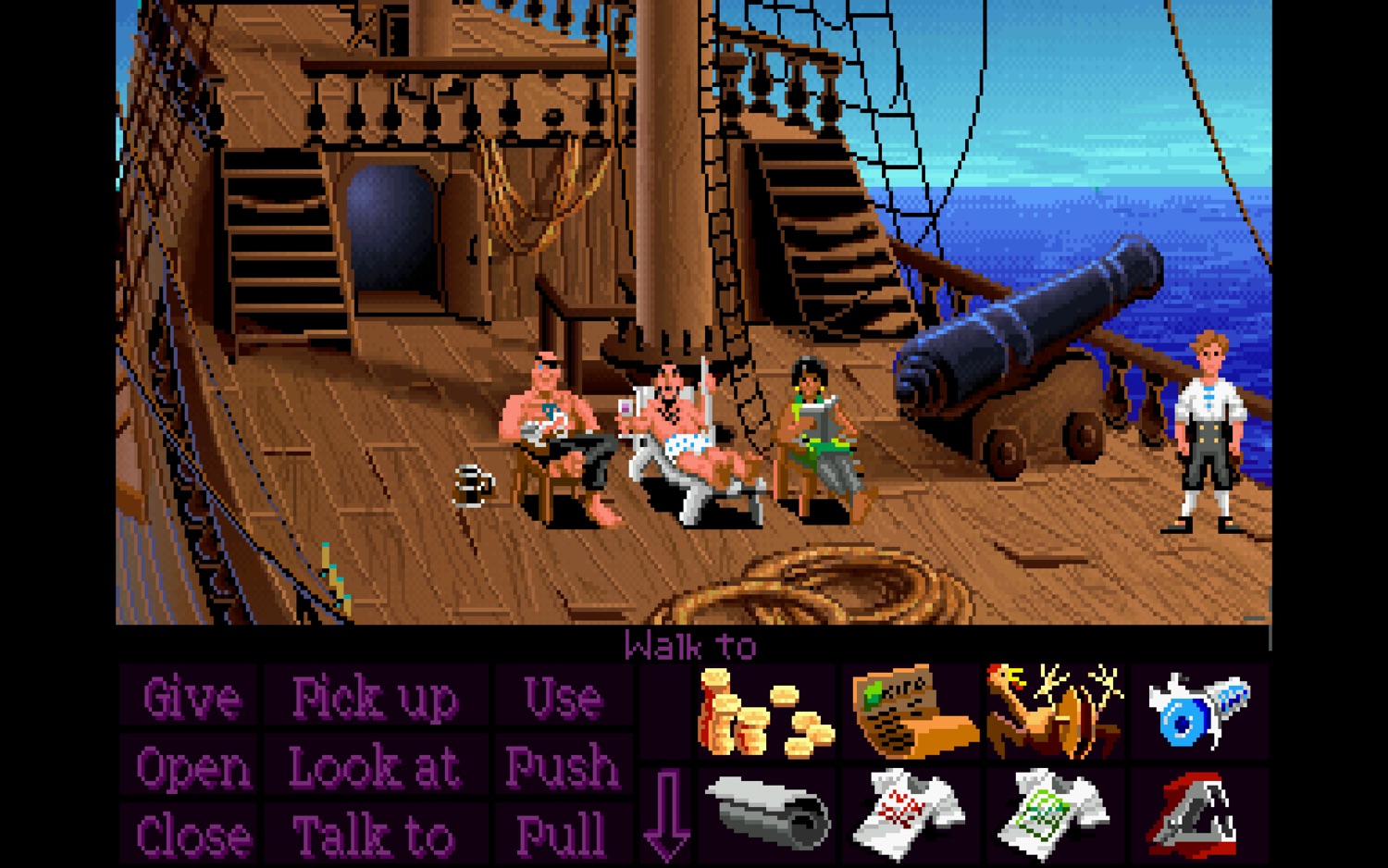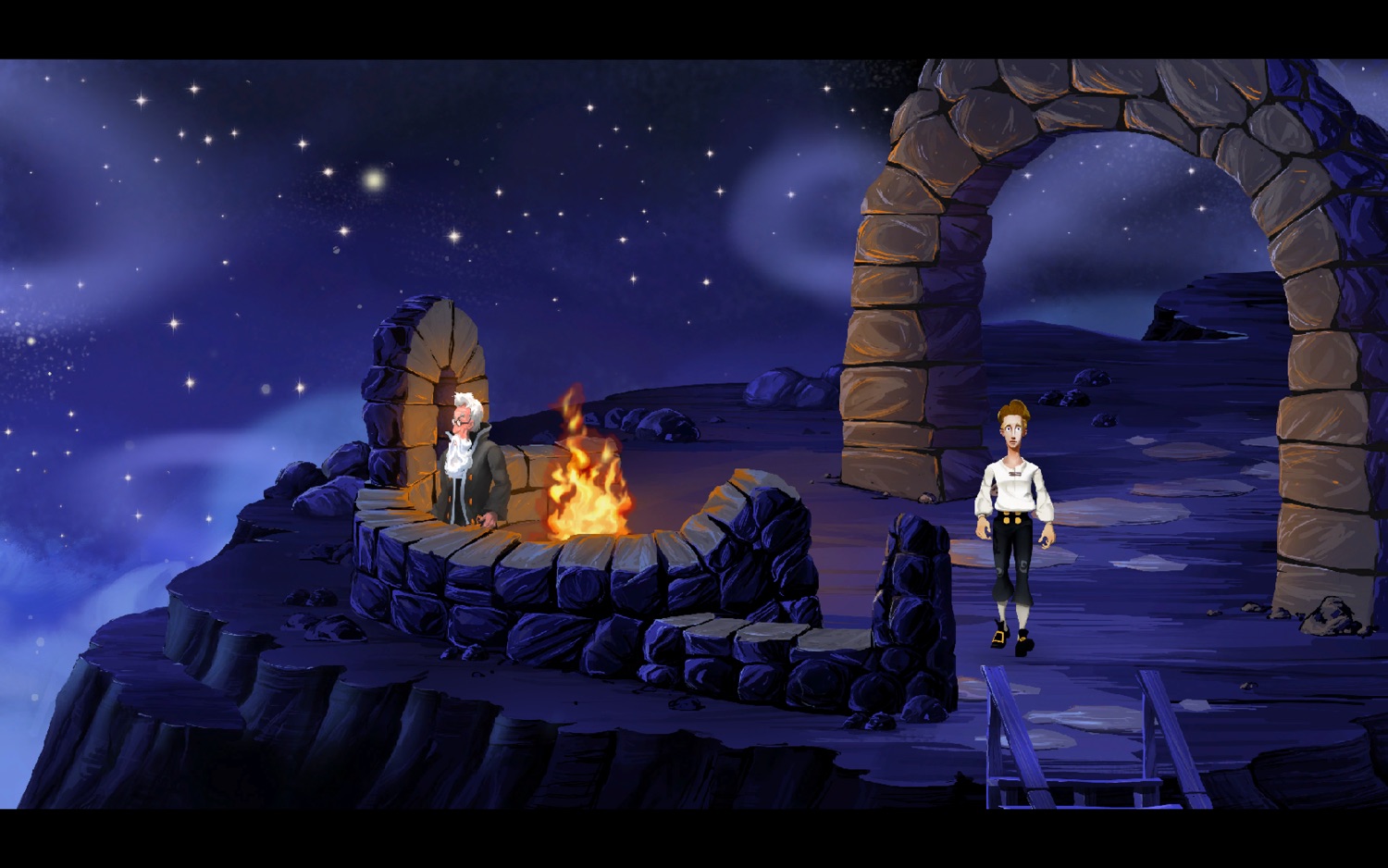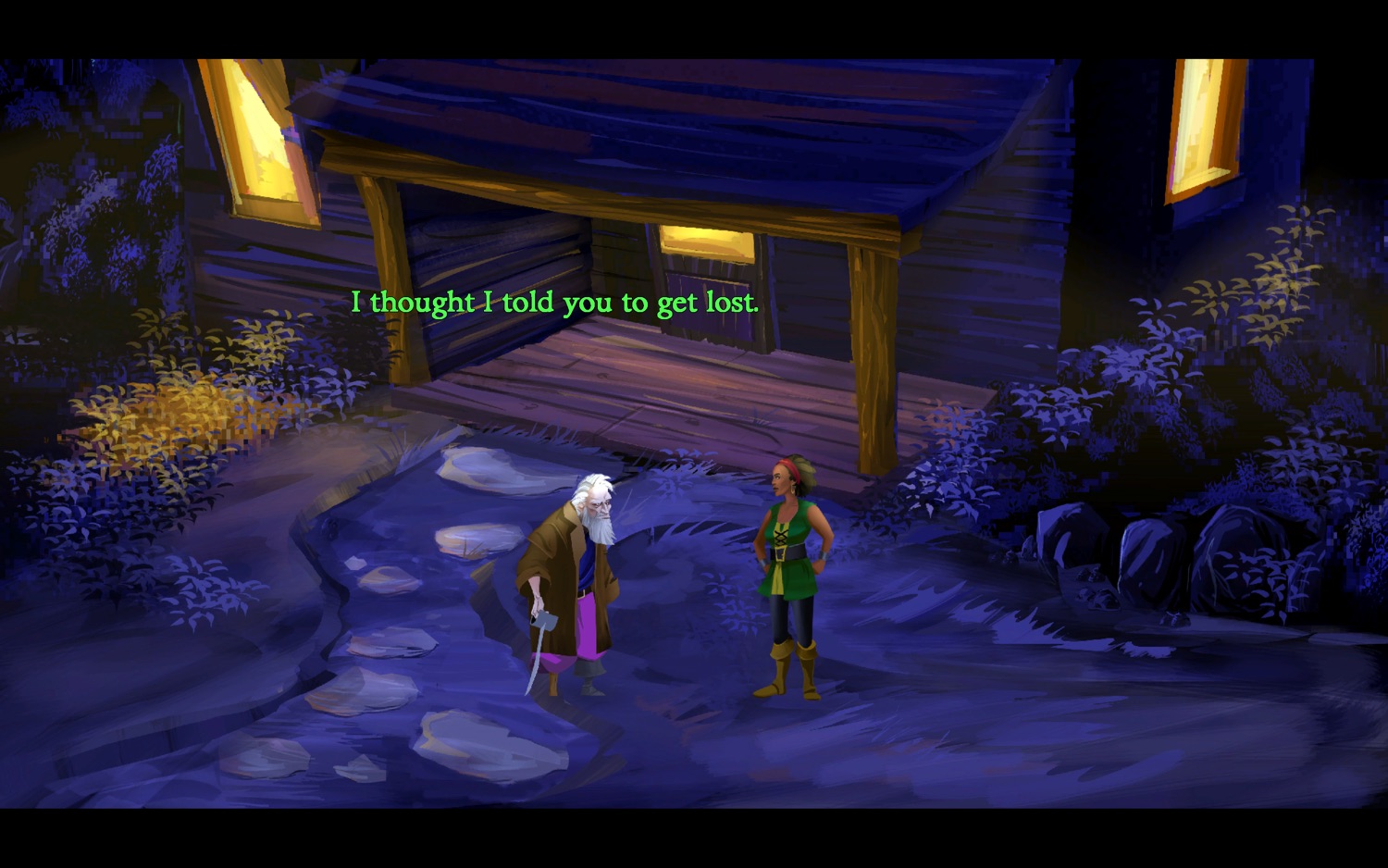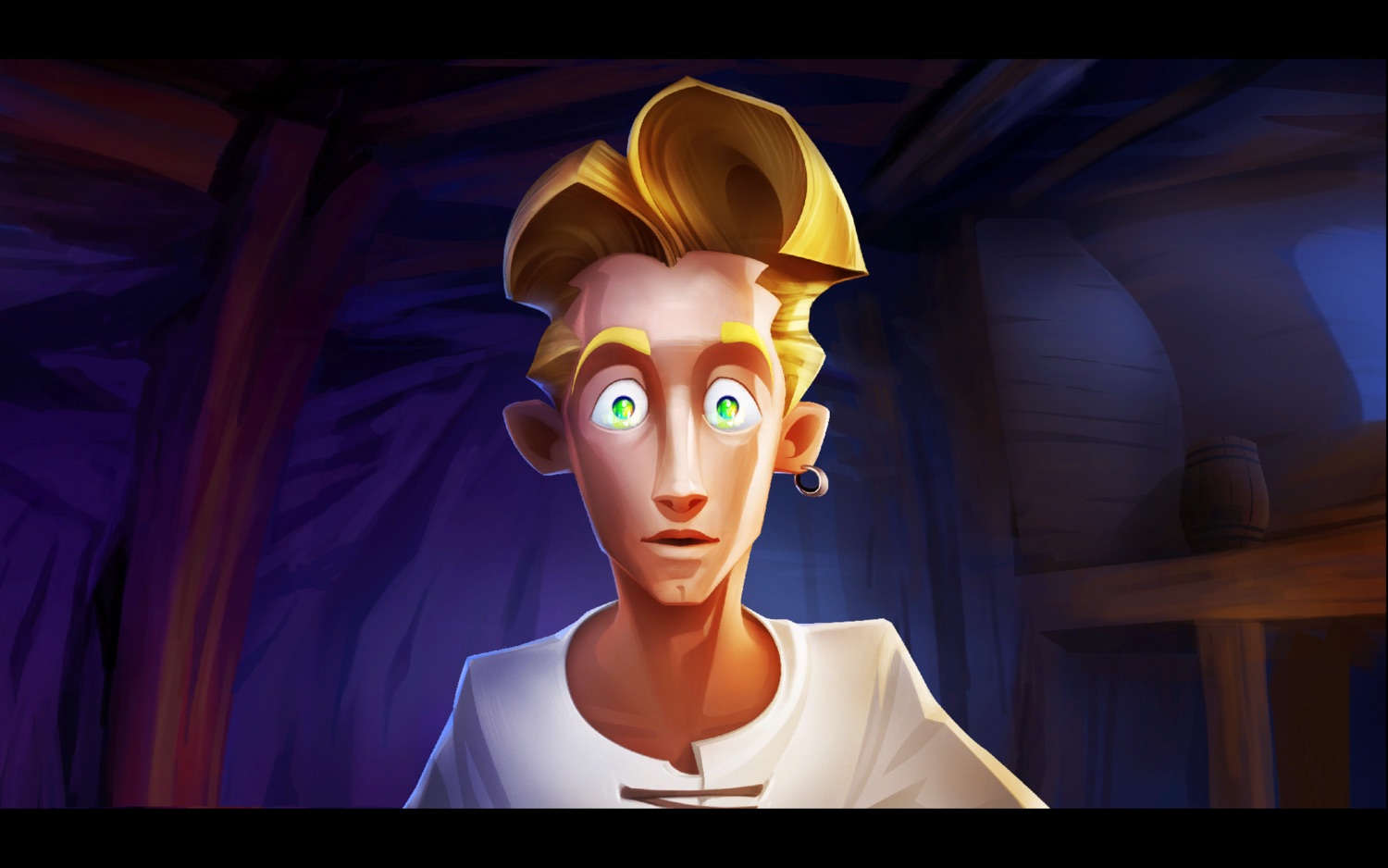When Guybrush Threepwood declares himself to be a mighty pirate, we all get to laugh at his naïveté—as if the simple act of declaring himself to be one is all it takes for him to be feared and respected—before he is roundly beaten into submission under a torrent of verbal abuse.
WARNING: Spoilers abound!
This is a comic game about an inept wannabe pirate that no one really respects so in love with a romantic ideal that the only reason that he doesn’t wear the tacky tourist t-shirt that declares he’s conquered one of the Three Trials is because it’s not the right size.
His ceaseless optimism that he might one day be taken seriously is a major comic touchstone. Yet, by the end of it, he has captained a ship, defeated the great terror, and rescued the girl (Or, rather, found the girl to be competent enough to not actually need rescuing) in full realisation of his ambition.
He is no Chosen One. He is no master assassin whose world has been turned upside and now must seek revenge; or a gifted farm boy with the power to take down empires; or a wizard marked at birth and tasked with the unbearable burden of saving the world.
He’s a funny looking kid with a dumb name and a big dream and the wonderful, uplifting, inspiring part of this whole game is that this big dream and a willingness to do whatever is asked of him in pursuit of it is literally all it takes.
It is the kind of message that enters a ten-year-old boy’s head then rattles around in there for decades.
Returning to the The Secret of Monkey Island Special Edition over 25 years later, it’s an absolute joy to find that its comedy and charm has not diminished. The power of good story matched with well-balanced puzzles and an immersive and believable world remains as an artistic force as potent as ever.
Updating A Classic
The fancy new graphics, wonderful voice acting, and updated soundtrack are a tasteful redecoration of a beautiful old house that retains its foundations while bringing it into the modern world. The interface has been simplified, taking lessons from the last 25 years, and the familiar list of verbs has now disappeared to be replaced with a single cursor, leaving more room for the gorgeous new graphics.

A new hint system has been introduced, and its implementation is understated and tasteful. One of the things that concerns me when trying to make a classic adventure game today is that there’s a lot less patience than there was when these games were in their heyday, not to mention that a complete solution is a quick search away.
A hint system that does not tell you the answer but instead gives you a clue about where to look does not completely destroy that feeling of satisfaction that is the cornerstone of solving these types of puzzles (not that I needed to use this new system, of course), unlike a walkthrough. It is a welcome and well-implemented feature.
The Importance of Story
But the real reason The Secret of Monkey Island still shines so brightly is the exquisite writing.

It remains one of the strongest openings of an adventure game ever. Within the first minute, our hero has spoken those immortal words and we are in control. We have a clear purpose and our first concrete objective—walk down the mountain and enter a bar—and from that, the game branches out and gives us three more tasks, all with clear goals and hints on how we might complete them. The clarity of direction to the player while maintaining narrative cohesion is impressive, and something many other adventure games of the time failed to do well.
The already brisk narrative momentum that Act 1 provides moves into overdrive after the Three Trials are complete. The nebulous idea of becoming a mighty pirate is solidified into a direct challenge that will see our hero finally achieve what he set out to do. It remains an incredibly satisfying moment to have all of the “training” Guybrush has been engaged in up to that moment be called into action in a away that feels entirely natural and inevitable.
The characters Guybrush encounters feel fully realised—like the grouchy storekeeper who is ostensibly doing you a favour but just wants to go and talk to his crush, or the all-too-real petty politics between Herman Toothrot and the cannibals he shares the eponymous island with.

The Puzzles Puzzle
One of my favourite adventure games of the last few years, Kentucky Route Zero, argues that the thin veneer of interactivity provided by puzzles is unnecessary, eschewing any pretence that there’s going to be traditional adventure game-style puzzles by not even providing an inventory.
The player’s interaction is limited to moving the story forward. Make no mistake, it’s a hell of a story and the world they built is hauntingly melancholic in a way I never expected from a video game, but the traditionalist in me would have loved a little more interaction—mostly because I wish that I had more reason to spend time in the wonderful world they constructed.
It is far too easy for adventure games to do puzzles badly—adding nothing but frustrating roadblocks to progress, cheapening the story and reducing the weight and impact of the narrative beats—that it’s a testament to Cardboard Computer’s courage and confidence that they didn’t.
The comedic roots of The Secret of Monkey Island give the game more latitude in this regard. The finely-tuned difficulty and the direct effect of solving the well-balanced puzzles on story progression draws the player further into the world and allows them to inhabit the protagonist in a way that simply telling the tale would not.
The game is relatively short. Experienced adventure gamers will have it done in around five hours and the immediate replay value is limited. If ever there was an example of play time being an awful measurement of a game’s worth, however, then this is it.
Like a cherished movie, I have returned to it many times throughout the years and the charm, wit, storytelling, and characters have stayed with me for decades. It remains an all-time classic and a masterclass in adventure game design.
Major Lesson: It’s all about the writing.
The Secret of Monkey Island Special Edition is available on GoG.
